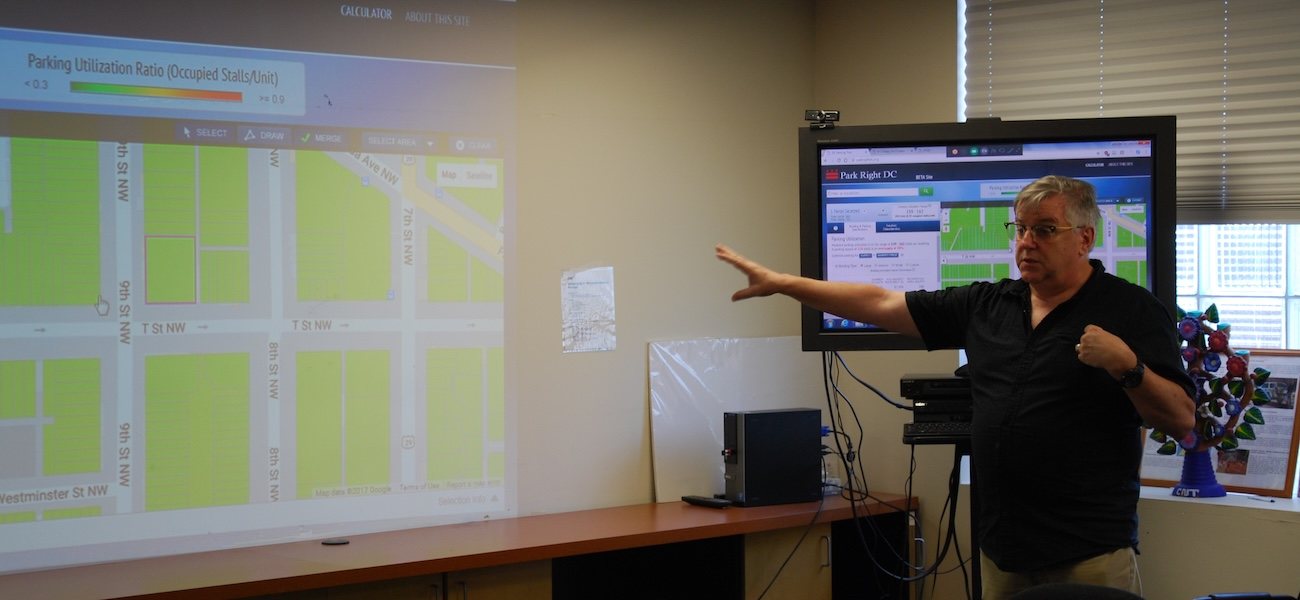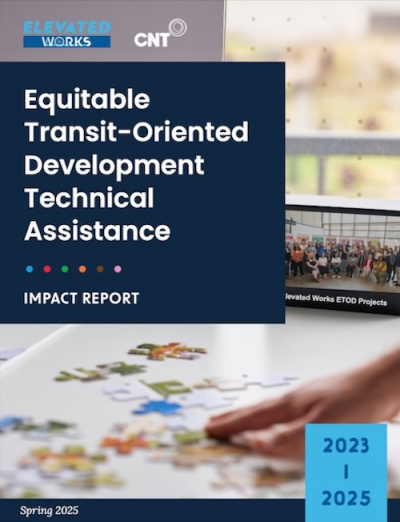
The Best of Chicago Manufacturing Could Be Yet to Come
The Center for Neighborhood Technology Offers New Strategies for Revitalizing Chicago’s Industrial Sector This election cycle, the dearth of American manufacturing jobs has taken a central role in the debate about the shrinking American middle class. With cheap labor abroad and the seemingly unstoppable march of automation, can manufacturing jobs ever return to American cities? Today, the Center for Neighborhood Technology (CNT) unveiled a new strategy for revitalizing Chicago’s Central... Continue reading »
Chicago Organization Receives National Award for Taking the Fight for Better Flood Control to the Streets—Literally
GRAND RAPIDS, Mich.—The Center for Neighborhood Technology’s RainReady program, based in Chicago, received national recognition for its new and unique approach to address the front lines of floodplain management. The Association of State Floodplain Managers, the world's leading voice for sound floodplain management, science and policy, presented RainReady with its 2016 James Lee Witt Local Award for Excellence in Floodplain Management June 23 during its national conference in Grand Rapids,... Continue reading »
Reflections on CNT's Vision and Impact By Kathy Tholin
After 11 years as CNT’s CEO, I’m stepping down this week. It’s been a remarkable journey. In 1978, I was a recent college graduate looking for a way to reinvent cities. I was fortunate to discover Scott Bernstein, only a few years older, who was just founding a new organization aimed at promoting neighborhood innovation and empowerment. I came on board. Remarkably, CNT’s core DNA was established at that early date and has continued to drive the organization for 38 years. To pursue... Continue reading »
Civic Tech + Grassroots Entrepreneurship Solves Real-World Problems
Center for Neighborhood Technology Holds Fifth Annual Urban Sustainability Apps Competition High-profile incubators like 1871 may be the heart of Chicago’s tech scene, but the Center for Neighborhood Technology (CNT) thinks that tech entrepreneurship can play a big role in revitalizing Chicago neighborhoods that sorely need new investment. This month, CNT held its fifth annual Urban Sustainability Apps Competition to connect coders and developers with idea leaders from a diverse array of... Continue reading »
The Resilience Conversation That Chicago Needs to Start Having
By Anthoni Cefali, CNT Young Innovators Chicago’s climate resilience has been widely discussed following a number of extreme weather events on the East Coast and devastating drought in California, but its economic resilience may deserve just as much attention. Home to Fortune 500 companies and a vibrant tech scene along with the manufacturing muscle that fueled a population boom in the early 1900s, Chicago’s diverse economy employs 4 million people and produces a gross regional product north... Continue reading »
The Rich Shouldn’t Be the Only Ones Who Get to Live Near Transit
Equitable transit-oriented development (eTOD) seems like a no-brainer for many Chicagoans. Housing and amenities near transit are, after all, community assets. Residents can get to work faster, with less stress, and they’re able to go about their daily business without having to bear the expenses of auto ownership. However, across Chicago, these benefits are not shared equally. Investment in TOD areas (and beyond, for that matter) is uneven. Some neighborhoods don’t have any new investment... Continue reading »
Tech Entrepreneurship Can Do Big Things for Disadvantaged Neighborhoods
Update 6/17/16: Last night at the Sustain-a-City Celebration, our panel of judges chose the winners of the 2016 Apps Competition. Congratulations to all of our finalists! The winning teams are: 1st place: Stop Crime App 2nd place: Chi Safe Path 3rd place: Neighbors Creating Neighborhoods People's Choice: Schedule Scout A big thank you as well to our judges: Shelley Stern Grach | Director – Civic Engagement for the Technology and Civic Engagement (TCE) group at Microsoft... Continue reading »
Goal for Global Cities Should be Poverty Reduction
As leaders from around the world converge for the Chicago Forum on Global Cities, it's worth asking about the very nature of “global cities.” Are they simply big, innovative, and connected business centers that generate wealth for a select few? Or are they world-leading places because they create economic opportunity for everyone? The often-cited A.T. Kearney Global Cities Index doesn’t even factor income inequality into its formula. But Euromoniter International finds that the world'... Continue reading »
Is Your Downspout Causing Your Basement to Flood?
In our April newsletter, we offered tips for spring cleaning your gutters. Now that your gutters are clear and able to catch the rainwater from your roof, let’s talk about where this water is flowing. The gutters connect to downspouts that direct rainwater from the roof down the exterior walls of the home to the ground. The downspouts may discharge into pipes that take water to the sewer system or be disconnected, which is a good way to keep water from overwhelming the sewer and backing up... Continue reading »
RainReady Joins Blue Island Resilience Effort
One of the first times Mary Carvlin’s basement filled with rainwater overnight, a local water manager told her something that has, hauntingly, proven true time and time again. He told her that “the thing that makes flooding so traumatic is that when the flood is over, the nightmare is just beginning.” Mary lives in Blue Island, a suburb south of Chicago that saw its heyday back when the primacy of American manufacturing wasn’t yet a memory. Thanks to funding from Cook County, CNT’s RainReady... Continue reading »





 Strengthening Transit Through Community Partnerships
Strengthening Transit Through Community Partnerships







